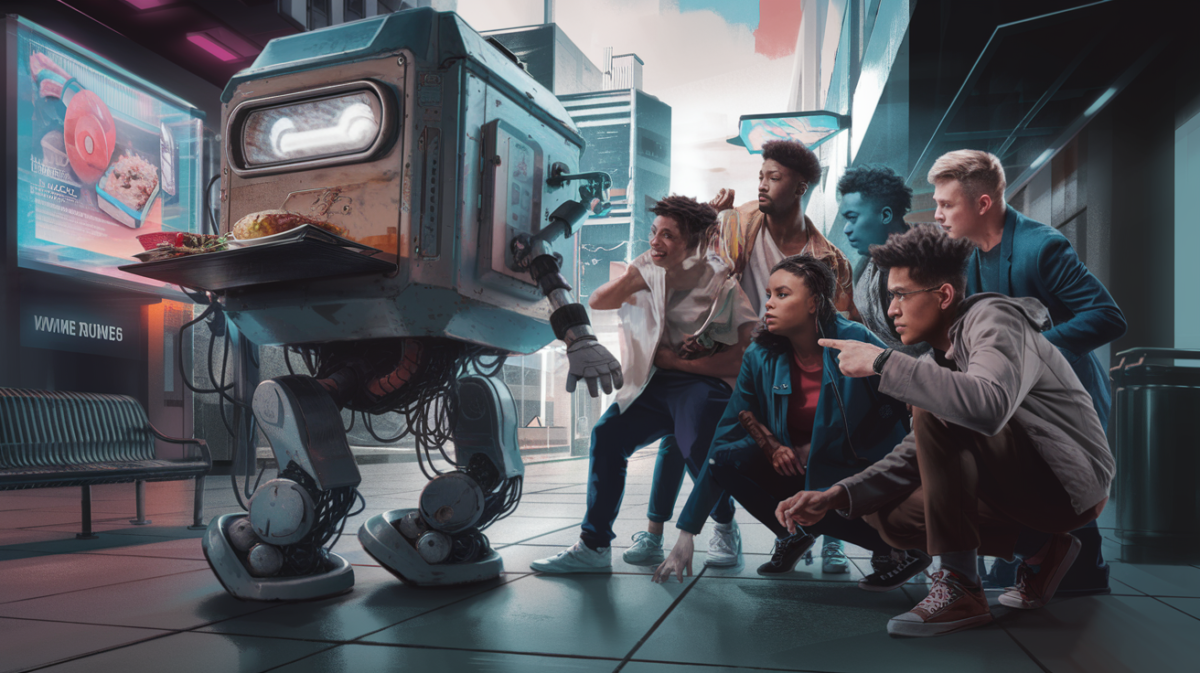Introduction
The term “clanker” has recently surged in popularity as a viral slur directed at robots and artificial intelligence (AI) systems. Borrowed from “Star Wars” lore—where clone troopers used it to insult battle droids—the word has been repurposed by younger generations to voice their frustrations with AI’s growing presence in daily life. This linguistic shift reflects a broader societal unease about the rapid integration of technology and its potential consequences.
The Viral Spread of “Clanker”
In July 2025, “clanker” exploded across social media platforms, particularly TikTok, where users shared videos mocking AI systems. One notable clip, featuring a user shouting “Get out of the way, clanker!” at a food delivery robot, garnered over 4.8 million views. The term quickly became a shorthand for expressing disdain toward AI, especially in contexts where it replaces human roles.
- Origin: Rooted in “Star Wars,” the term was originally a derogatory label for battle droids.
- Modern Usage: Gen Z and millennials have adopted it to critique AI’s role in customer service, delivery, and other sectors.
- Platform Impact: TikTok and Twitter have become hotspots for “clanker” memes and discussions.
Public Sentiment: Fear and Frustration
The rise of “clanker” mirrors deeper public concerns about AI’s societal impact. A June 2025 YouGov survey found that 47% of Americans believe AI’s overall effect will be negative, with job displacement being a primary worry. The fear isn’t unfounded—industries like retail, logistics, and customer service are increasingly relying on automation, leaving many workers anxious about their futures.
| Concern | Percentage of Respondents |
|---|---|
| Job Displacement | 62% |
| Loss of Human Interaction | 45% |
| Ethical Implications | 38% |
Industry Responses to AI Criticism
As backlash grows, tech companies are taking steps to address public concerns. YouTube, for example, updated its monetization policies in July 2025 to discourage “AI slop”—repetitive, mass-produced content generated by algorithms. The move aims to promote originality and creativity, signaling a recognition of the need for human-centric content.
- Policy Changes: Platforms are tightening rules around AI-generated content.
- Transparency: Some companies are labeling AI-created material to distinguish it from human work.
- Ethical AI Development: Calls for responsible AI deployment are gaining traction.
Cultural and Ethical Implications
The adoption of “clanker” isn’t just a linguistic trend—it’s a cultural barometer. While some argue that the term fosters division, others see it as a form of resistance against unchecked technological advancement. The debate raises critical questions about how society should balance innovation with ethical considerations.
Key points of discussion include:
- Human vs. Machine: Should AI replace jobs traditionally held by people?
- Accountability: Who is responsible when AI systems fail or cause harm?
- Cultural Shifts: How will language and attitudes evolve as AI becomes more pervasive?
Conclusion
The emergence of “clanker” as a derogatory term for AI highlights a growing public backlash against the unchecked integration of artificial intelligence. While technology offers undeniable benefits, the concerns it raises—about jobs, ethics, and human identity—cannot be ignored. This phenomenon underscores the need for a balanced approach to AI development, one that prioritizes both innovation and societal well-being.







